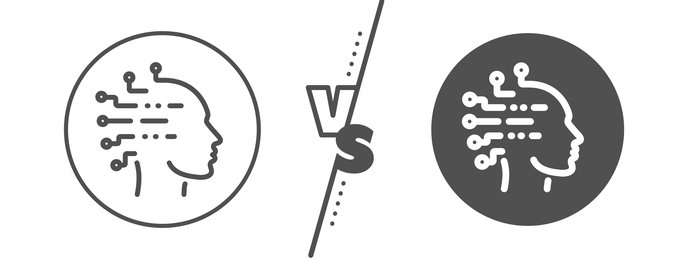Artificial Intelligence is a massive part of our lives, from social media ads to campaigns and different advertisements. It’s spread everywhere, and since it’s a huge part of our lives, it’s due time that we make the most of it and incorporate it in generating tools in our Business, start from today!
AI is the perfect tool you need to make far-reaching changes in your sales. In a recent report published, approximately 80% of people expect AI to play a supporting role in revolutionizing marketing in the years to come.
Let’s find out how businesses can incorporate Artificial Intelligence and machine learning in their business model to generate leads, qualifications, and conversions.
5 Ways to Use AI in Your Organization
1. Achieving Personalization in your Business
Quite a few people sometimes aren’t satisfied with the customer service of different brands. Hence, they do not prefer purchasing from them. Fortunately, with AI, you can make a massive difference in improvising your customer’s experience. How can that be done? You can track your customers on the website, their likes, and dislikes, and develop a good insight regarding customer behavior.
By using different tools, different data is gathered, and you can engage visitors on the site. Artificial Intelligence allows you to greet your old customers with their names, personalizing their experience and making them feel welcomed. You can wish them on their birthdays by sending an email and a small discount code to make their experience the best with your brand. By going through their browsing history and services or products, they like you can build a personalized list of products they may want on your website. Artificial Intelligence helps you achieve this!
2. Development an Accurate Lead
Your Business must have a proper and accurate lead segmentation, including division of your target audience according to age, demographics, their different behaviors. This will help come up with messages of a group of people who have the same interest. AI assists you in building a segment based on your buyer according to their behavior patterns and makes it highly personalized. AI helps you provide your customers with the best experience and helps your brand grow too!
3. Reduction in Repetitive Tasks
A recent study shows that AI and machine learning will save businesses up to $8 billion by 2022. You can use different chatbots to help reduce the burden on teams responsible for responding to customers at additional hours during the day. These chatbots can reduce the costs spent on customer support by 30% and handle most of the queries customers ask.
Today, you’ll find chatbots made for conversations only, and they can learn from every new interaction to help improve the performance. These chatbots help can help and guide customers through the sit and suggest different items according to the visitors browsing history. They enrich your business’s query resolution and keep proper records and updates. This makes the work so much easy for you!
4. Repetition in Success
Artificial Intelligence is a powered platform assisting in lead generation. Machine Learning uses different algorithms to achieve marketing intelligence. They search and scan various organizations and find the organization whose description is similar to yours according to the criteria instilled in the system. Through this system, you can easily lead and grow towards success as the AI creates a continuous pipeline.
5. Machine-Driven Email Campaigns
You can easily set up automated email services through AI, which can be driven by your database’s customer data and behavior. This technology is vital in using the history of the user, their interests, and browsing behaviors. AI creates and sends automated emails before or after an event, such as after purchasing, abandoning the cart, etc.
These emails have a high rate of opening because of the attractive subject lines and the content. They are a pretty convenient way of grabbing the customer’s attention.

Final Thought
We have established that AI is an integral part of our lives and supports our brands in making everything better. From customer experience to campaigns. But the real question is how to achieve all of the above? That’s when Byonic.AI comes in place. The experts at Byonic can help you accomplish all of the above through their know-how in machine learning and artificial intelligence. What are you waiting for? Click on their website and take your business up the notch!




